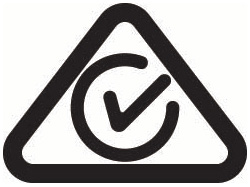This is the top of the main content
Television interference
Television reception problems are normally caused by either a weak signal or an interfering signal. Both types of reception problems will exhibit the same effect on your screen.
Causes of television interference
Television reception problems can be caused by:
- radio or electrical interference
- reduced signal, caused by an obstruction blocking your antenna (eg, trees, hills, severe weather)
- being too far away from the transmitter
- a faulty television
- a faulty or low-gain antenna system
- multi path signals causing cancellation of the primary signal
- periods of bad weather or hot dry very stable weather, causing signals to temporally fade and/or be affected by incidental reception of unwanted signals from a distant station.
What television interference looks like
Generally with digital television you either have an excellent picture or you have no picture at all. However, at the threshold point you may notice the picture breaking up into multi-coloured squares of varying screen coverage. If this happens the audio will usually also become broken and disjointed.
See What television interference looks like for more information.
What you can do
Television reception problems are mostly caused by:
- faulty receiving equipment, including poor installation of items like antennae, satellite dishes and cabling
- interference.
We recommend getting your equipment serviced or checked for faults before taking any further action.
See What to do about TV reception problems for more information.
Preventing interference
To prevent interference, we recommend that you do the following.
Only buy equipment with the RCM
The RCM (Regulatory Compliance Mark) indicates that the electrical and electronic product:
- is declared by the supplier to comply with New Zealand’s electromagnetic standards for radio interference
- has been tested to international standards, and
- is less likely to cause or receive interference.

The Regulatory Compliance Mark
Move your aerial away from electrical noise
Electrical noise from electrical and electronic items, including domestic appliances and power lines, can may interfere with reception. Locating the aerial away from these sources — as well as from household wiring where possible — will assist in reducing interference.
Registering an interference complaint
Experience has shown that very often the cause of interference will be found in the household affected, and may be solved by the householder. To confirm your reception problems are caused by external interference, and not by incorrectly installed equipment or interfering equipment installed in your home, read this page first.
What to do about TV reception problems
If you can't resolve the problem yourself, we recommend you contact your local service technician in the first instance. If they're not able to resolve the problem for you, we can provide an interference investigation service for television reception problems within the coverage area of the television station affected.
Freeview coverage maps(external link)
Interference complaints will be responded to, and remedial action commenced within 2 working days of being lodged for 95% of domestic interference complaints.

